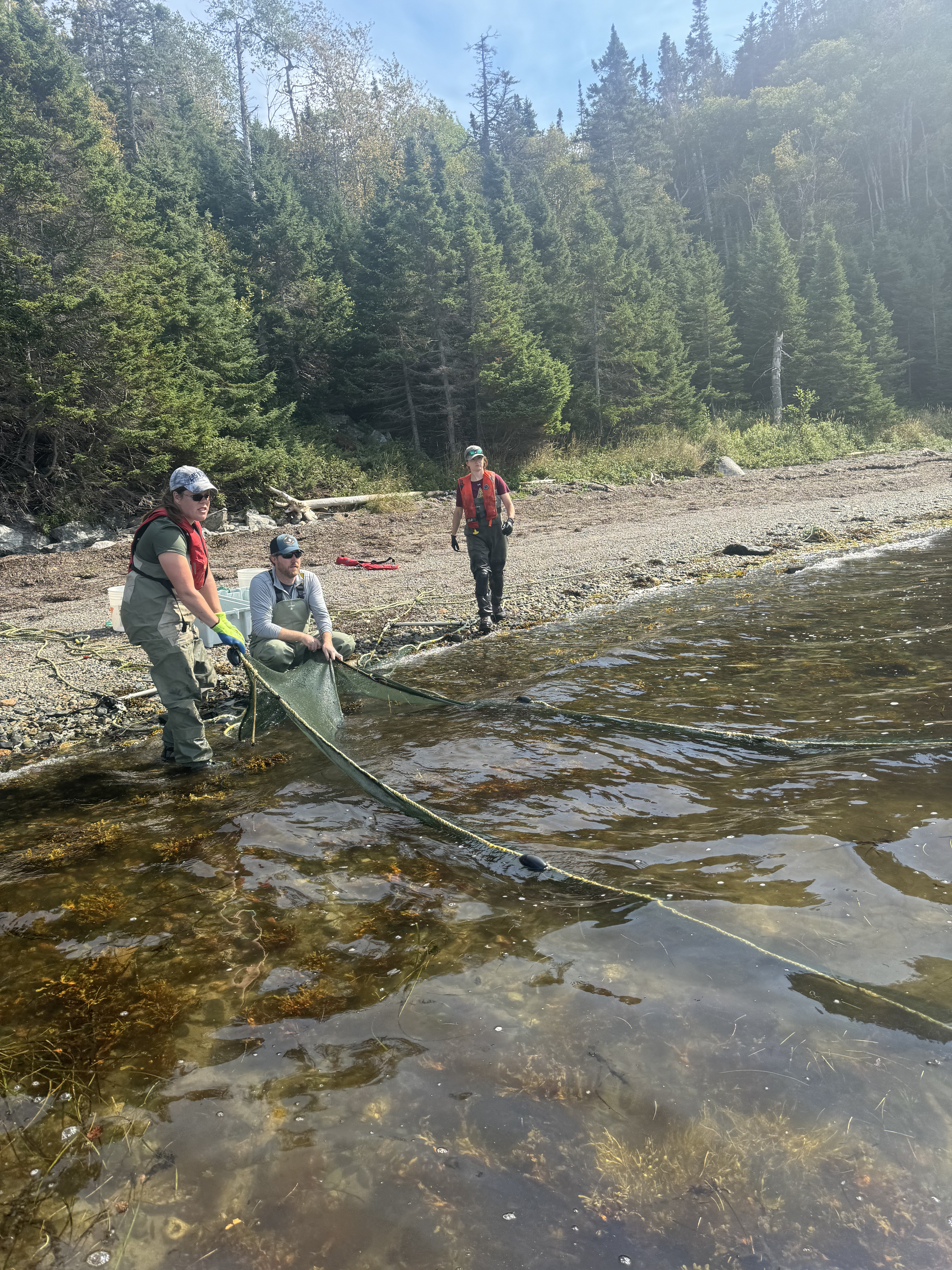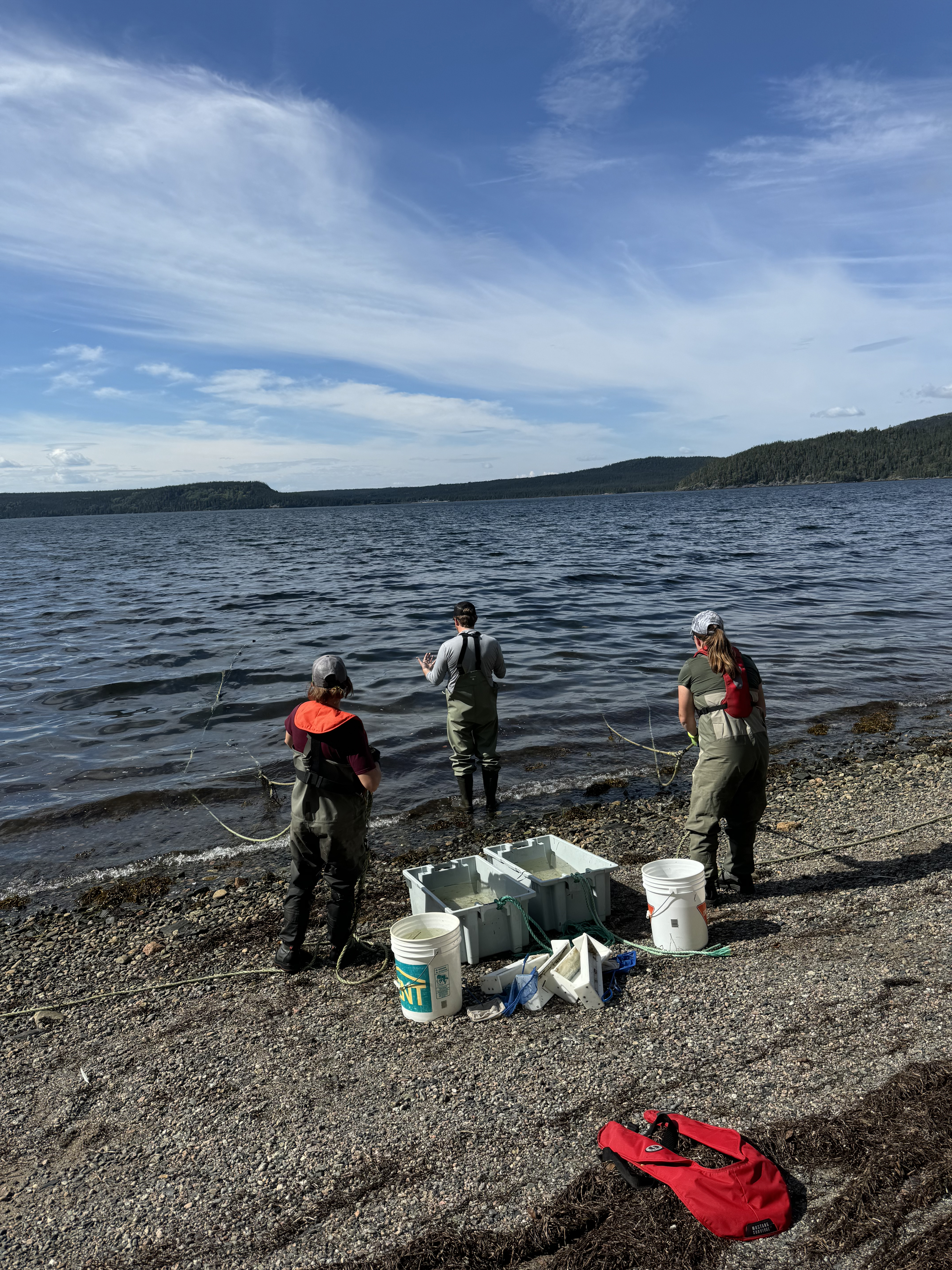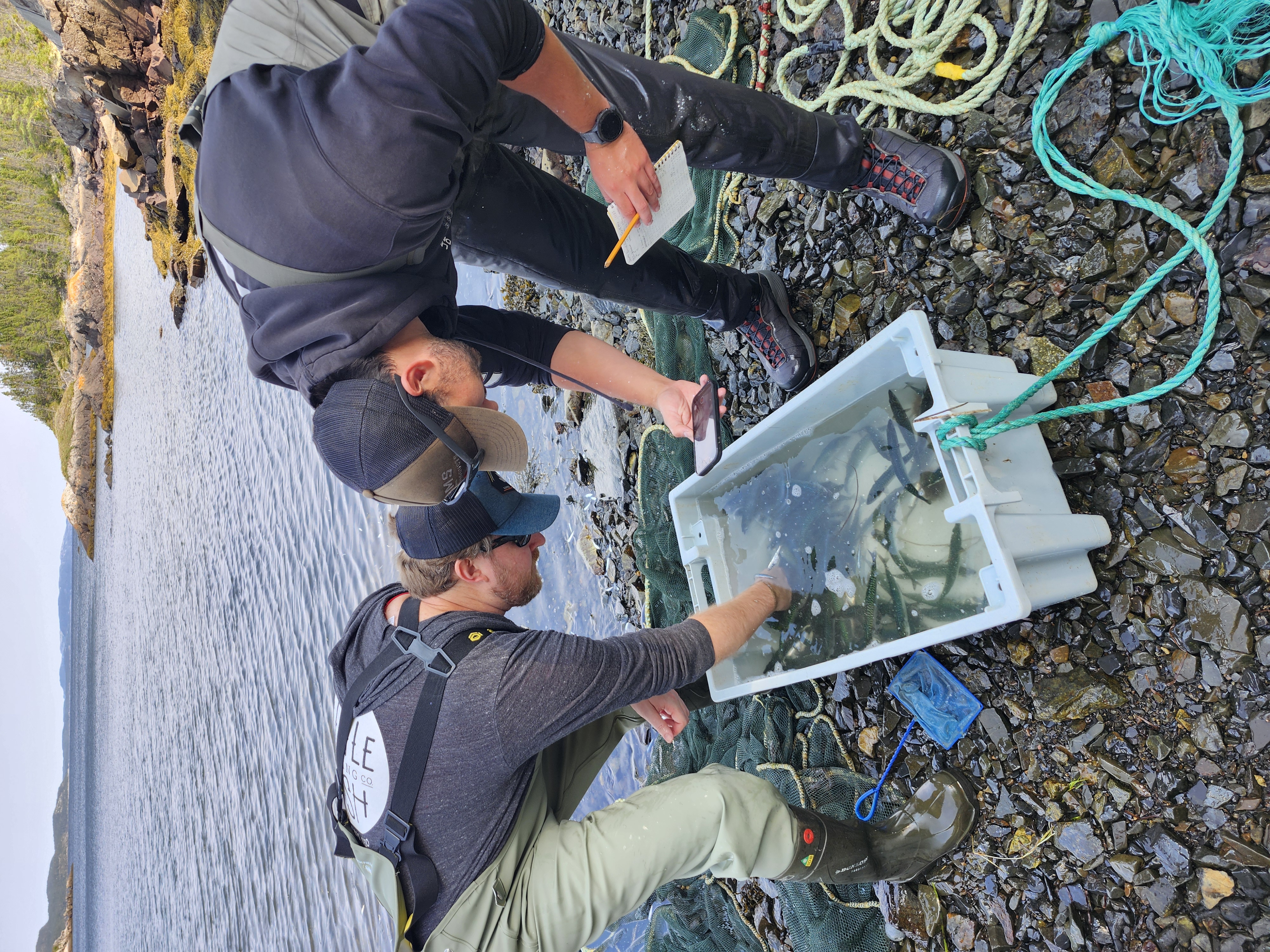Terra Nova National Park, Newfoundland, 2024
We are collecting seasonal tissue samples from two cod species, Gadus ogac and Gadus morhua, as part of the NSF-funded project (Dan Wright PostDoctoral Fellowship 2420167) to investiate the evolution of seasonal tissue plasticity in the kidney. In some high-latitude cod species, the glomerulus in the kidney shrinks and becomes non-functional in the winter to preserve antifreeze proteins at high concentrations in the blood. There is effacement of podocyte cells and thickening of hte glomerular basement membrane in a manner that is very similar to the irreversible processes that occur in human glomerular diseases. Unlike in humans, some cod kidneys recover in the spring and become functional again when antifreeze is no longer produced. We are collecting samples for use in single cell sequencing and histology to test the phylogenetic breadth of this phenomenon and to identiy the molecular mechanisims underlying this tissue plasticity.





